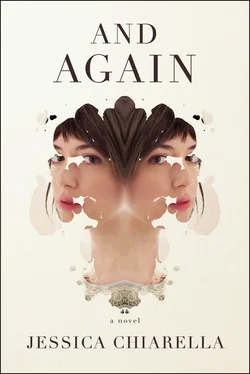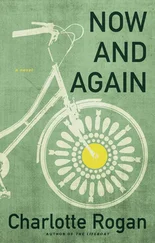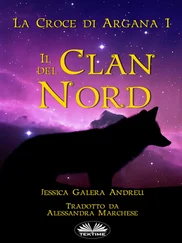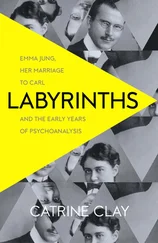Before the accident, I always imagined myself to be an ordinary sort of person. A kind person, someone with a large heart and certain perseverance. Maybe not enough to cling to a buoy or saw off one of my arms. But a good wife, a good mother. And then the settlement money from the accident ran out. Suddenly Cora’s services were too expensive. Suddenly, Tom began to talk about finding me a place where I could be cared for around the clock.
Within my first month at the nursing home, my world shrank so small that it siphoned every bit of kindness or perseverance right out of me. The cage of my body took on a terrible, crushing weight. Like being buried alive. I didn’t have four walls and a window. I had one wall, and a bit of ceiling, and a TV that was mounted there. Gone were the clouds and sunshine. Gone were Cora’s stories, and the sounds of my children running down the upstairs hallway, and the smells of garlic bread and tomato sauce wafting up from our kitchen.
The four years I spent at Shady Glen Nursing Home felt like fifty. I read once that all anyone ever truly wants out of life is more time, that the search for immortality is the basis for all human achievement. And I knew I was the exception to that rule. Time was my enemy. Time was a slow drip of agony in my IV. I prayed for infections, for fluid in my lungs, for bubbles of air in syringes. But, as neglectful as the nursing home staff was when it came to just about everything worthwhile in a life, they were uncannily good at keeping me alive. If I could have told Tom one thing during his weekly visits, just one, it would not have been that I loved him, or our children. It would not have been that I missed my life, even the scraps of it that I had in those first years after the accident. If I got a single message in a bottle, floating up from the ocean of my isolation, I would have told him to cut off my oxygen and leave me there. My world had grown so small that the only thing left to do was to leave it.
So, there it was. I was the type of person who would let go, swallow mouthfuls of seawater and sink below the surface. I would stop moving and let myself freeze to death on the side of a mountain. I would find the highest cliff on my desert island and throw myself off. And because I could do none of those things, because I was utterly powerless to change the terrible current of my pulse or rid myself of the machine that kept me breathing, I lost myself in the lives of the characters on TV. I lived for those afternoon hours, more than I ever lived for Tom’s visits, or even my own children. I drank those stories up, letting it anesthetize me like an opiate flooding into my bloodstream. I could ride for hours on that high, sometimes. I could close my eyes and write myself into their stories, touch their lovers, relish the sweet pain of their tragedies. And I understood it, finally, for what it was. It was a secret world. It was my window.
And then. And then. Two blinks.
“What did you talk about?” Tom asks, maybe because I still haven’t answered him. It’s hard to focus for too long, especially with the TV on in the background.
“I mostly just listened.”
“Well, what did the rest of the group talk about then?” Tom has a mousy quality to him now. His hair has gone thin and gray in the past few years, which makes him look like he’s in his late forties instead of thirty-five. He looks decades older, instead of three months younger than me. He looks so tired, and I wish he would go. It’s the feeling I’ve had on so many occasions, when he’d come to visit me with the kids, when the day was bright and sunny and I knew they were missing out on it because of me. I wish he would go, instead of sitting here trying to talk to me. It seems like a waste of an evening.
“I’m not supposed to tell,” I finally say, hoping that will be enough to send him out, on his way. I wonder what he would be doing on a normal Thursday, if he weren’t here.
“The kids want to see you,” he says then. I nod, because I don’t know how to answer. “Jack thinks you’re like Han Solo. That’s the only way I could think of explaining it to them. Where Han gets frozen and then thawed out? It’s the best kid-friendly analogy I could come up with.”
“Snow White,” I say, not looking at him. “Sleeping Beauty.”
“Oh, right,” he says, and he sounds so abashed that I force myself to look at him and smile, which takes some effort. It takes my eyes away from the TV. I’ve been working on smiling in the mirror when I stumble across the room to use the bathroom. It’s as if I’ve forgotten that I can smile and laugh and frown, and I’m so out of practice that I have to make the decision to smile before I do it. Nothing feels natural anymore. Nothing, that is, except lying in my hospital bed, staring at the TV that’s mounted on the wall, and wiggling my toes. Everything else feels too massive, and too terrifying. One for no. Two for yes. Things were so much simpler before.
David walks into the meeting five minutes late. Connie, Linda, and I glance up when he bangs his way through the door, his stride measured and unhurried. He pauses at Dr. Bernard’s still-empty chair.
“Good. I’m not holding things up today,” he says, to no one in particular. Connie rolls her eyes.
“Looks like you’re only the second most important person in the room this week,” I say, giving him my best faux campaign-ad smile.
“Thanks for warning me about the coffee,” David replies, his voice gruff in my ear as he passes my chair. He takes the seat next to me. “That first sip ended up down the front of my shirt.”
I stifle a laugh with my hand, and my stomach hurts at the effort. I wonder if I’ve laughed before this moment, since the transfer. I can’t remember. But the image of David spewing coffee all over himself is too good to keep a straight face. He scowls at me.
“I really appreciated that. I thought we were supposed to be in this together.”
“And I really appreciated you voting to cut funding for the NEA,” I reply.
“Ah,” he says, sitting back in his chair and crossing his arms. Triumphant. “I see you Googled me.”
“Don’t flatter yourself. I know a few people who lost their grants after that vote. Really talented people, ones who are better than having to work at Starbucks to pay their rent.”
“Maybe they should have gone into something more useful to society.”
I feel young and whitewashed under his gaze, stripped of the signs and markers of my roughness, the hard edges I’d chosen and cultivated so specifically. I think of Sam, the way he looked at me when we met again in college, with my dyed hair and my nose ring and my tattoos. He looked at me like I’d been melted down from the girl he knew and forged of something harder and more brilliant. Some shining metal. Now I feel like clay, barely formed.
“Like garbage collection. Or politics,” I quip.
Dr. Bernard enters before David can say anything else. The good doctor is a full eight minutes late, all apologies, waving his hand in the air as if batting away all of the obligations that have trailed him into the conference room. Connie winks at me.
“So to begin this week, I think we should explain a little about what brought each of you into the program,” Dr. Bernard says, clicking his pen and preparing to write on the legal pad that’s balanced on his knee. “David,” he says, turning toward the other man, “would you like to start us off?”
David seems less than pleased at Dr. Bernard’s little show of authority. “I can give it to you in five words or less. Metastatic brain cancer.”
“And a little about yourself, please,” Dr. Bernard replies, coaxing him like a professor in a room full of bashful freshmen.
Читать дальше












